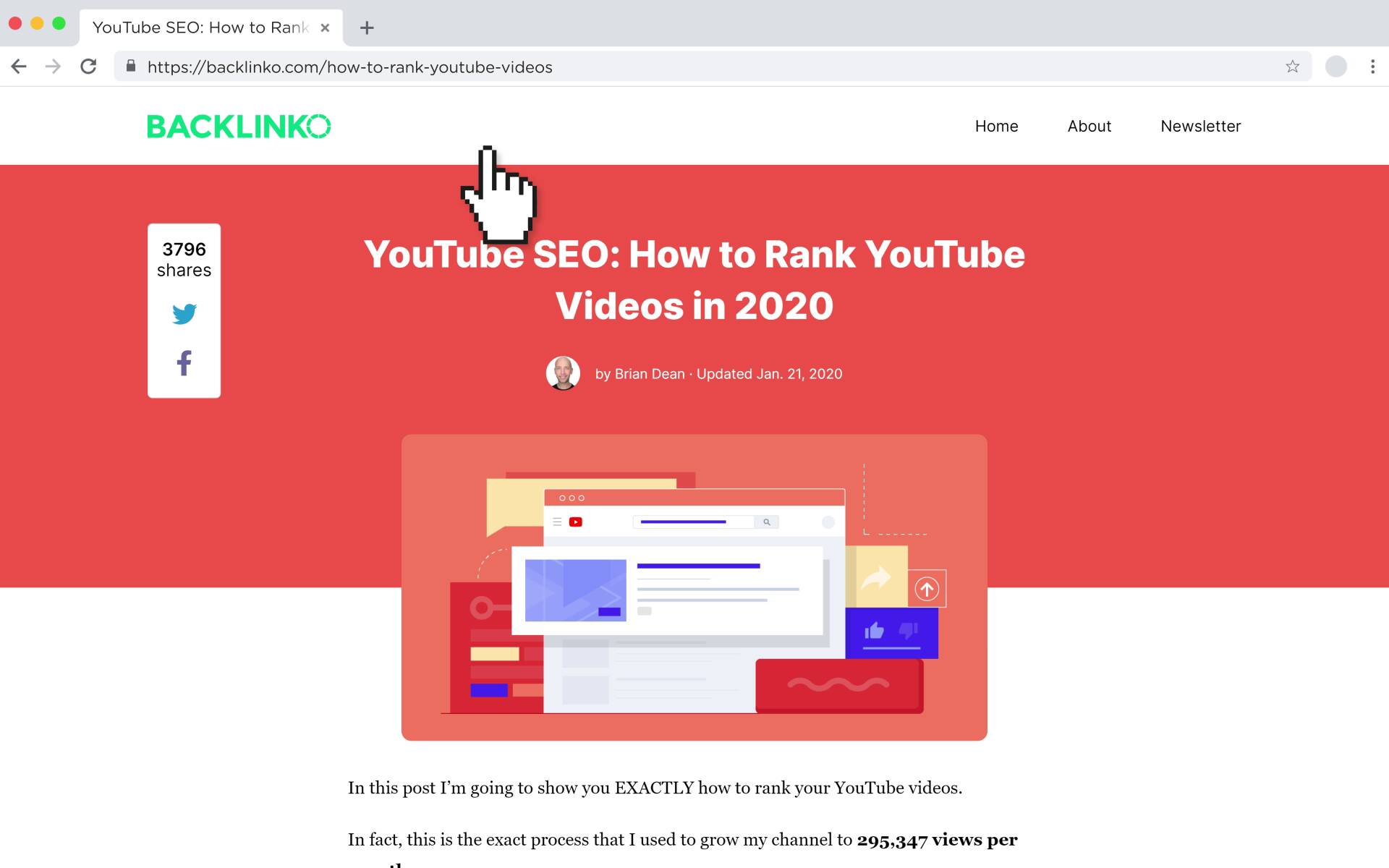19 Effective Digital Marketing Tactics
Written by Brian Dean

This is a list of 19 super-effective marketing tactics.
These exact tactics have helped grow my website to 673K monthly visits:

And 322,592 email subscribers:
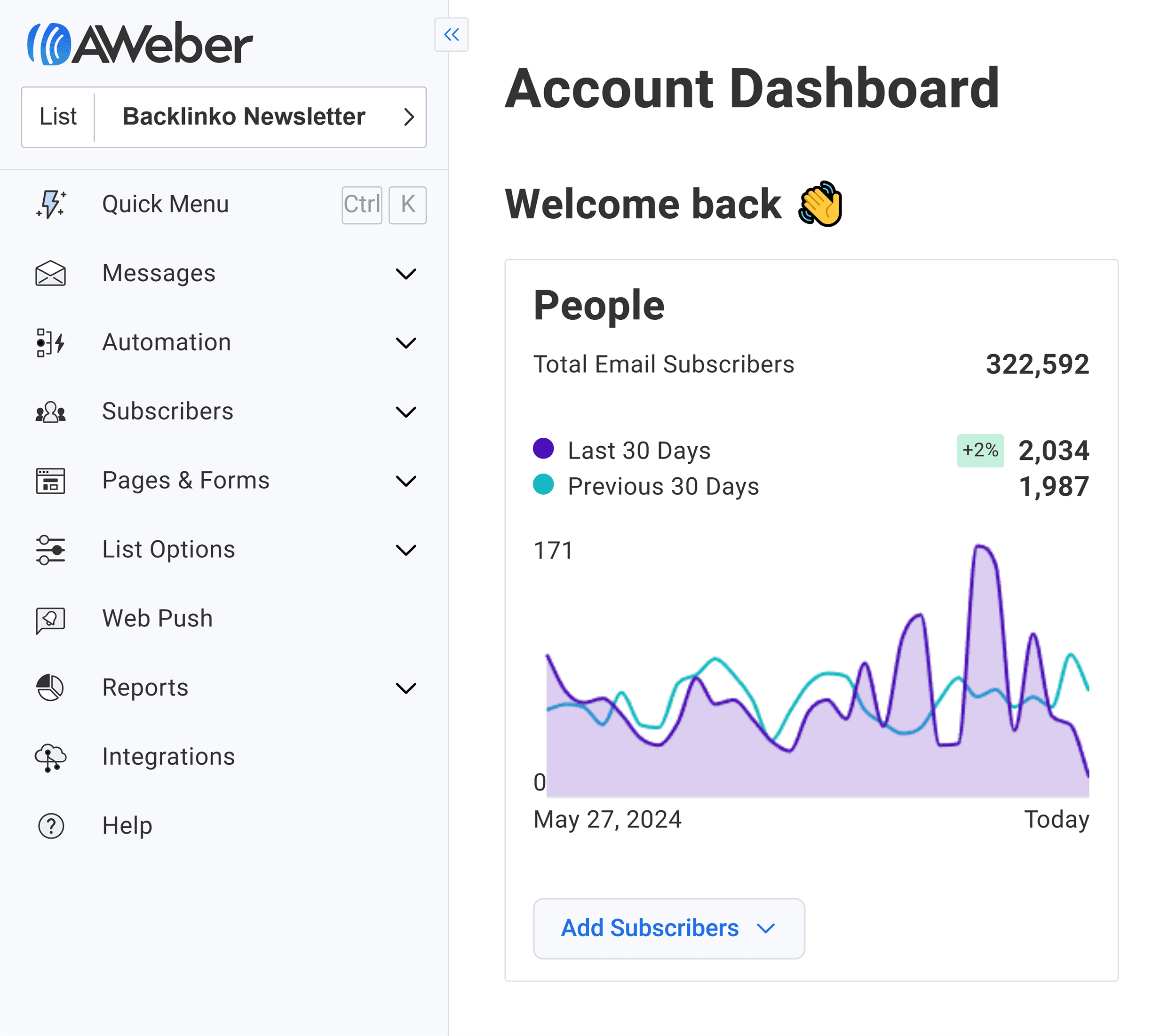
Let’s dive right in.
1. Post Lists on Social Media
Lists REALLY stand out on social media sites like X, LinkedIn, and Threads.
Here’s an example:

In fact:
Lists have helped my tweets get 2.1x more clicks.
For example, here’s what my old tweets used to look like:

There’s nothing wrong with that tweet. But it won’t stand out in today’s busy X feed.
Today, I share my posts in the form of a list:

And that simple list has helped me get WAY more traffic to each and every post.
Lists also help me get more engagement, comments, and reposts.
Like my post on LinkedIn which got 466 likes, 73 comments, and 19 reposts.

Not too shabby.
2. Update and Improve Your Blog Content
Years ago, I went back and updated EVERY single post on my site.
The result?
A 49.03% organic traffic increase.
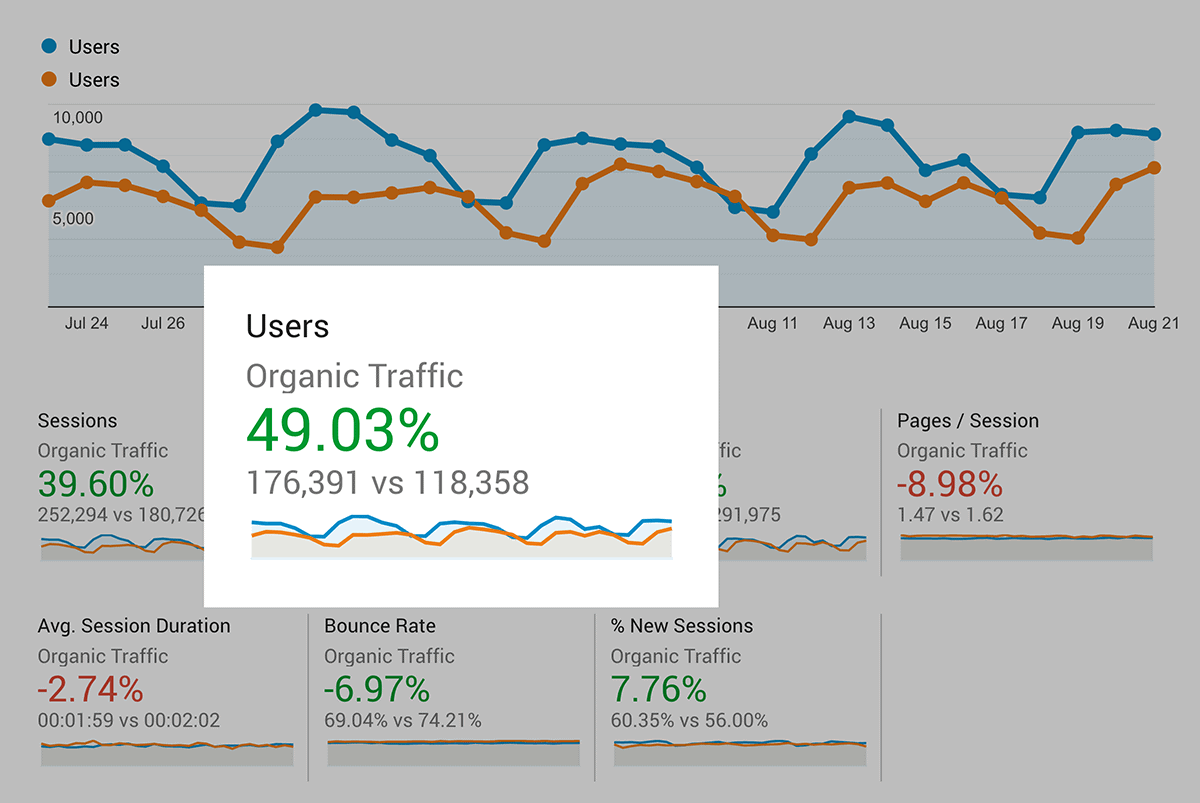
Here’s how I did it:
First, my team went one-by-one through every post published to date.
(Which was about 75 posts.)
Then, we put each post into one of three categories:
- Leave as-is
- Improve
- Rewrite
For example, this link building guide was great as-is. So it didn’t need an update.

On the other hand, this post was good… but kinda old.

So, we updated the content.

And we even had the occasional post that needed a complete rewrite.
For example, at the time, this case study was over five years old.

There’s not much you can do to update an old case study, right? I mean, the events in the case study already happened.
Which is why we rewrote that post from scratch and turned it into Viral Marketing: The Definitive Guide.
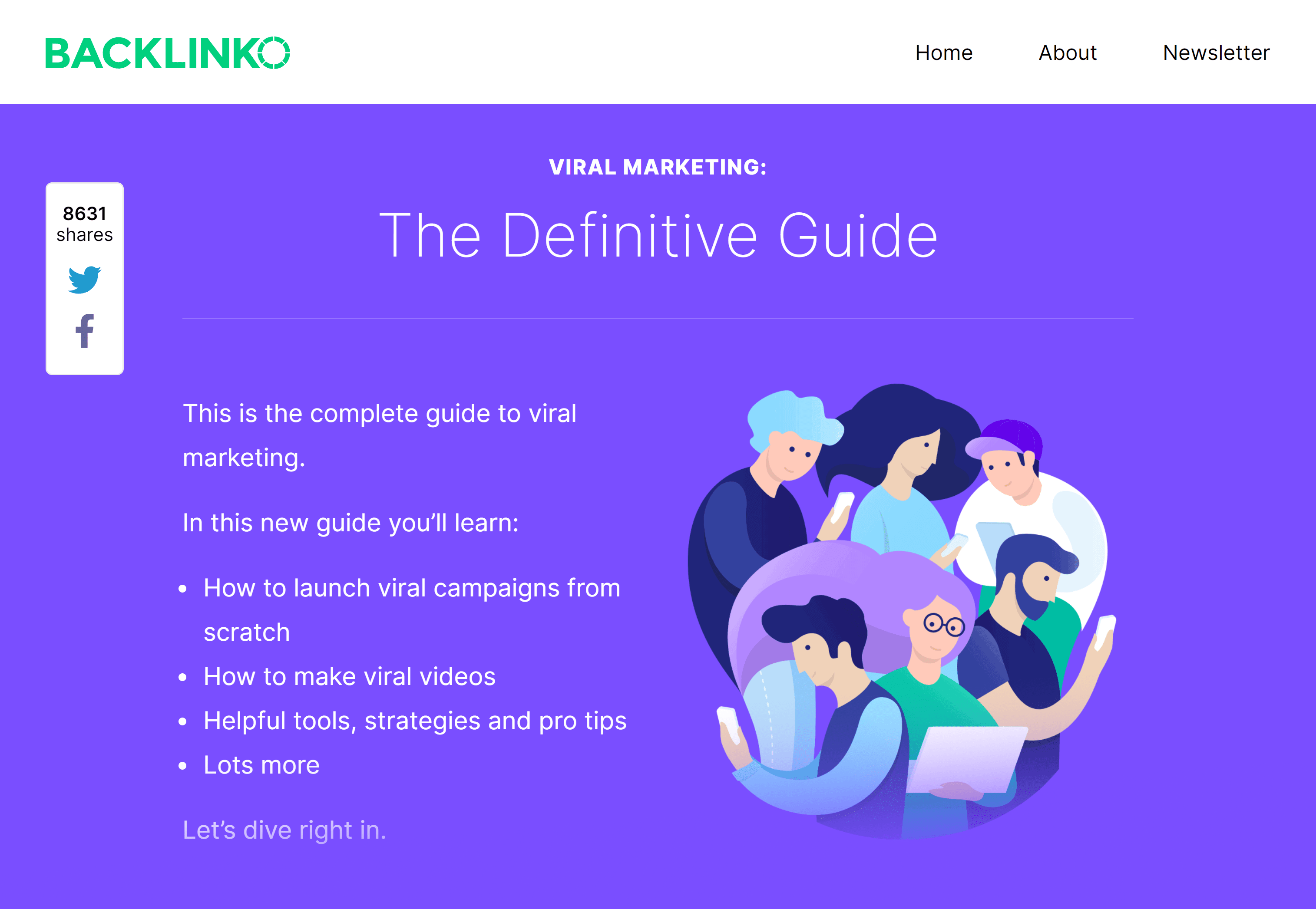
3. Take Advantage of User-Generated Content (UGC)
When real people share their experiences with your brand, it’s way more powerful than anything you could say yourself.
It’s authentic, relatable, and builds trust like crazy.
This is especially important for ecommerce businesses. Your customers can’t touch, feel, or try on your products before buying.
While they could go into a store to buy your product (in some cases), it negates the convenience of online shopping.
But UGC bridges that gap by giving prospects the confidence to buy with authentic content and reviews.
Take GoPro, for example. Its Instagram page is filled with tons of compelling user-generated content.
Like this post:

When folks see an actual customer sharing content about how they use your product, it can inspire confidence. And sales.
Of course, UGC works even better when you pair it with smart ways of advertising your business so more people actually see it.
So, how can you create an effective UGC campaign for your brand?
Here are the steps I recommend:
- Create branded hashtags for social media campaigns. For example, GoPro uses “GoProFamily.”
- Run contests or challenges with prizes for best submissions
- Feature customer content prominently on your website and social channels
- Engage with and respond to user content to show appreciation
- Use post-purchase emails to request reviews and photos
- Collaborate with influencers to generate more UGC from their followers
4. Cross-Pollinate Your Audience
This digital marketing tactic is simple:
Get your current followers to follow you on other platforms.
Why?
Well, most people get their social media followers from inside of that platform.

By cross-pollinating your audience, you also get a lateral pipeline of new followers.

For example, I’ve been asking new email subscribers to follow me on X (formerly Twitter).
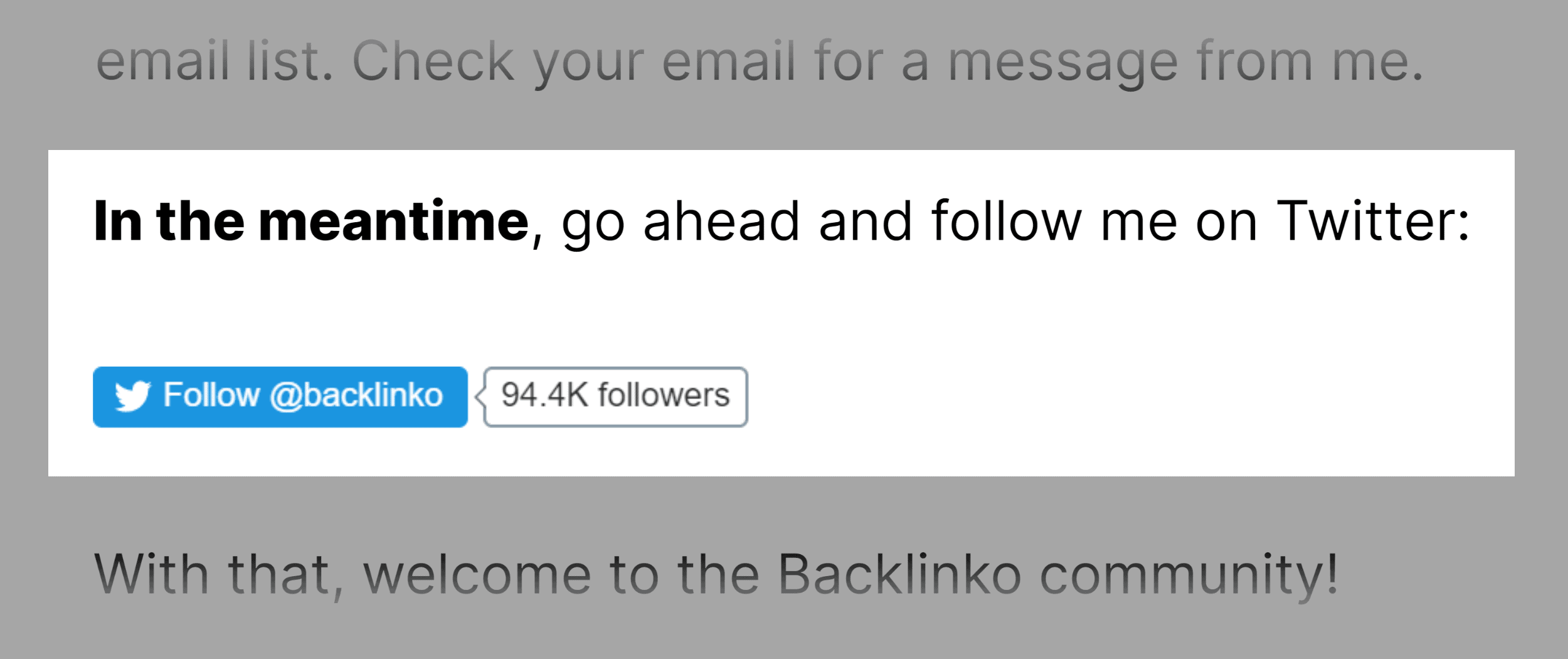
And this simple call-to-action has helped me grow to over 127K X followers:

5. Publish Original Research Content
Original research has helped me get featured in major media outlets like TechCrunch:
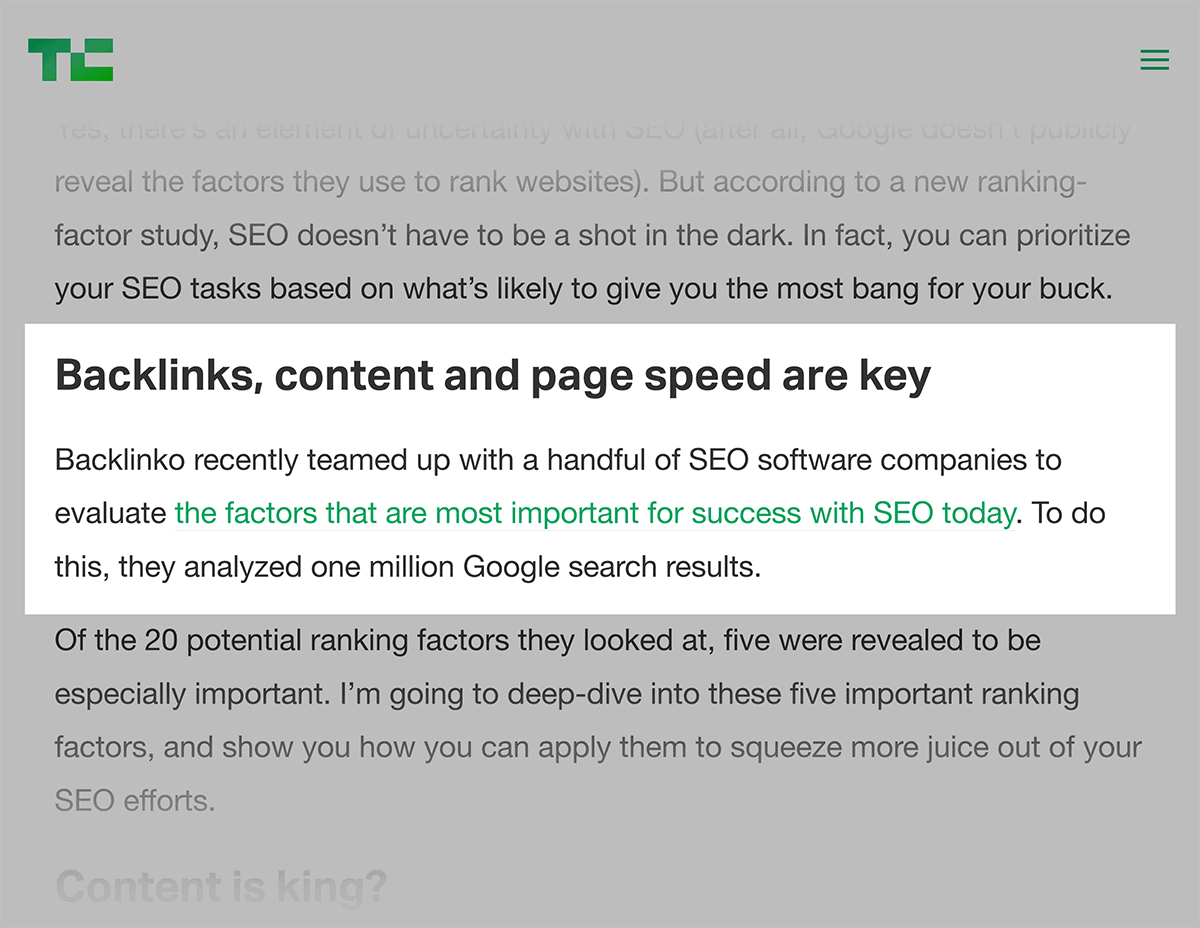
Forbes:
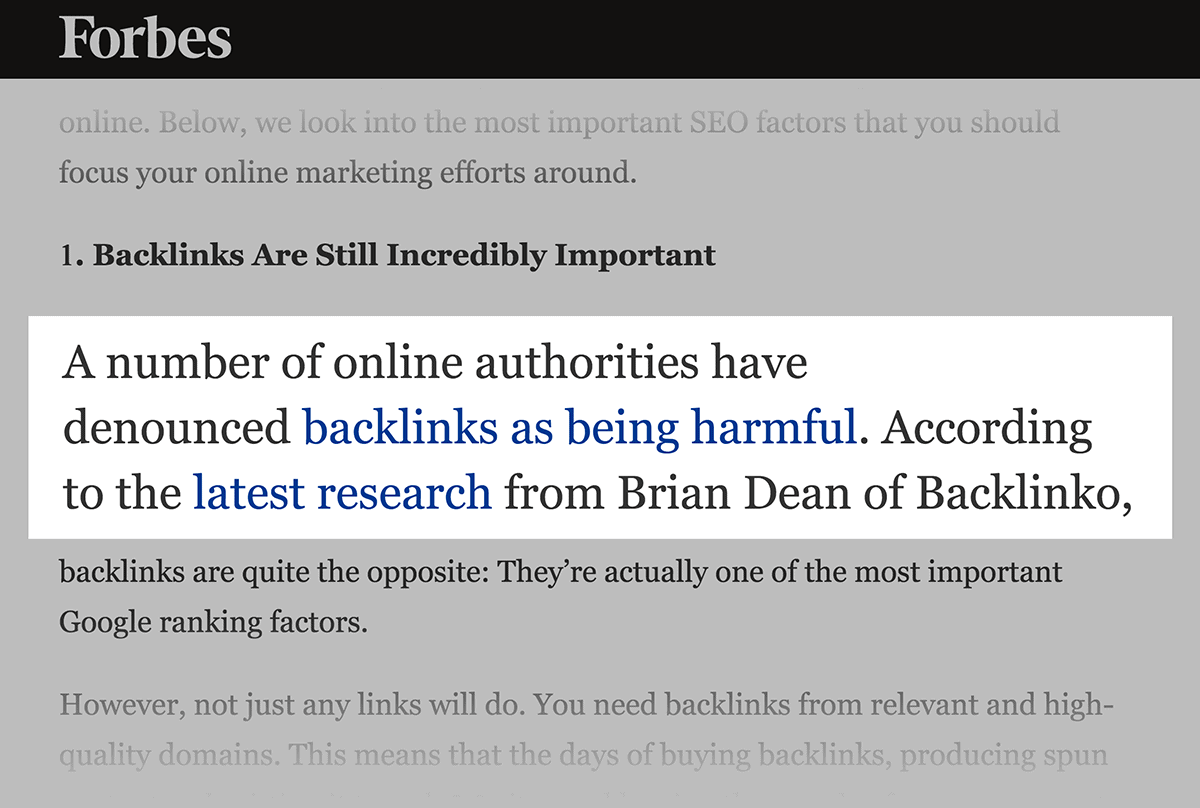
And Entrepreneur:
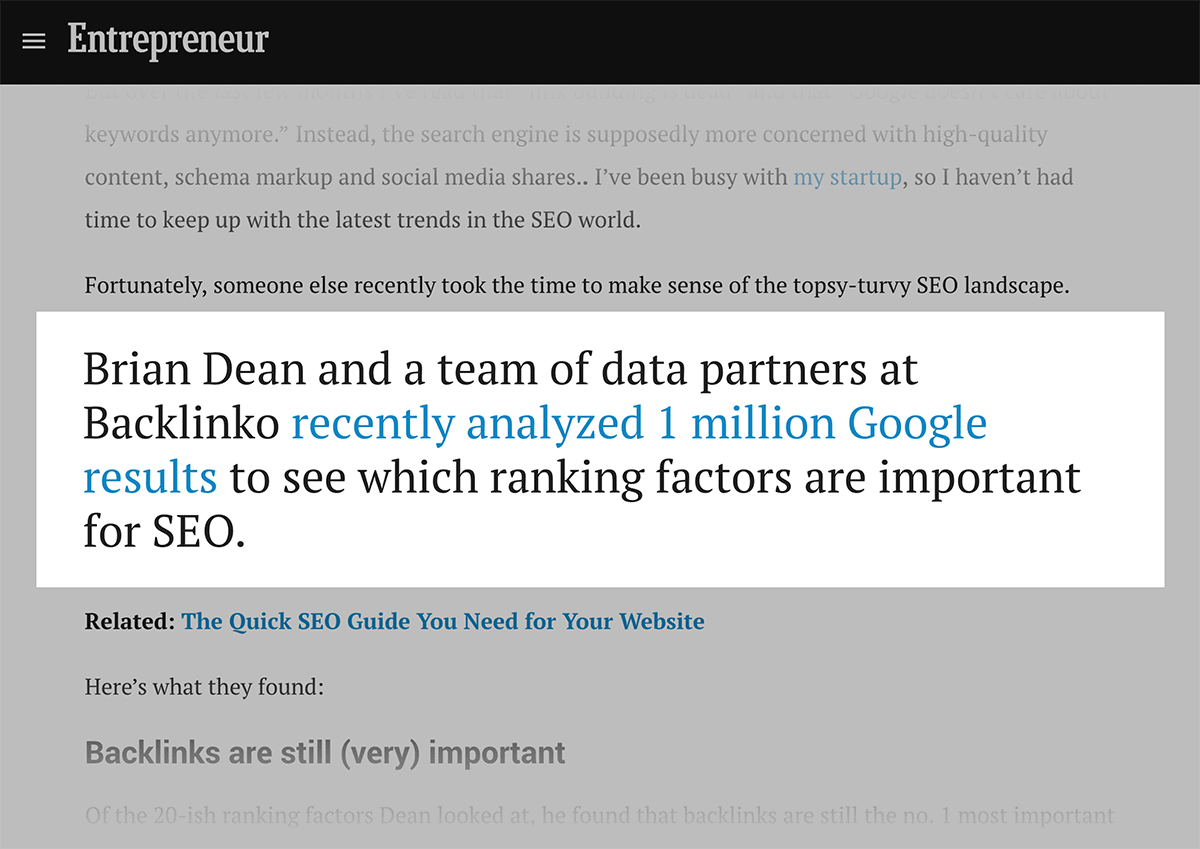
So, it shouldn’t come as a surprise that I plan on publishing MORE original research content.
And you should too.
Question is:
How do you do it?
When it comes to original research, you have two main options:
- Analyzing a bunch of data
- Running a survey
For example, some years ago, we analyzed 1.3 million YouTube videos to figure out why certain videos rank above others.

This post did REALLY well. But it was pretty complicated to do. We had to analyze the titles, views, tags, and comment counts of over a million videos.
So, if you’re just starting out, I recommend running a survey.
In fact, that’s what we did with this SEO Services Report, where we surveyed 1,200 business owners.

Compared to our YouTube SEO study, this survey was a CINCH.
Even though this survey was much easier than the YouTube study, it still did super well.
How well?
It attracted 886 backlinks from sites like Search Engine Land, Search Engine Watch, Inc., and more.

6. Upload Native Video to LinkedIn
Unlike Facebook, people actually LIKE the content that people share on LinkedIn.
(Especially video.)
In fact, Hootsuite reports that 70% of users see LinkedIn as the social media platform most likely to provide a positive return on investment.

So, if your business is B2B (or targets people who work in certain industries), LinkedIn should be part of your marketing strategy.
Why?
Unlike most other social media sites, the organic reach on LinkedIn is still GREAT.
For example, some time ago I uploaded a native video to LinkedIn:

And that video post got 857 likes and 139 comments.
Not bad.
7. Personalize Outreach Email Subject Lines
I analyzed over 12 million outreach emails.

Our most interesting finding?
That personalized subject lines work GREAT.
In fact, we discovered that outreach emails with personalized subject lines got 30% more responses.

For example, here’s an outreach email I sent out some time ago:
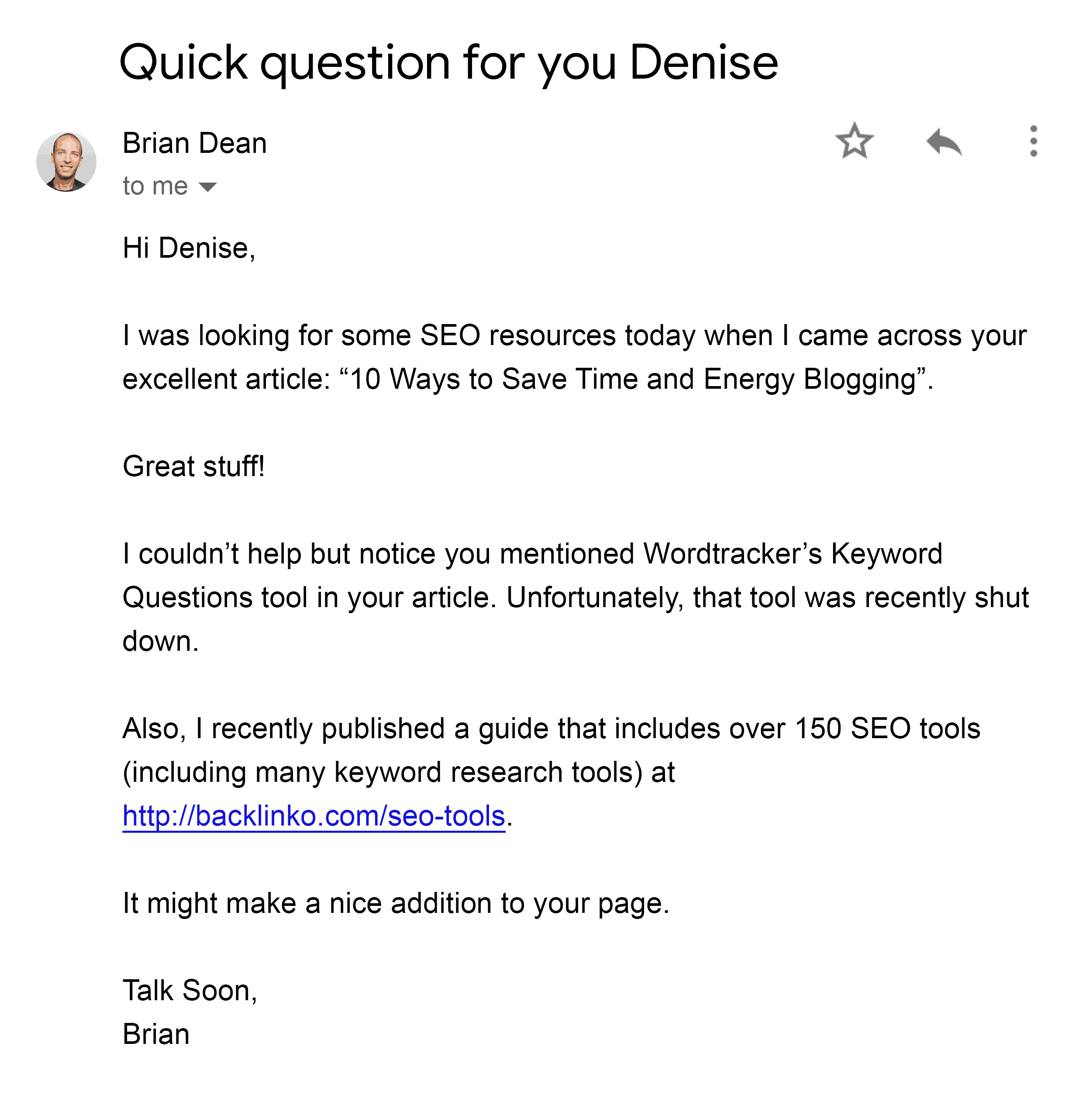
See how the subject line mentions the person’s name?
That really helps my message stand out.
8. Rank Your Site In The “#0” Position
Featured snippets let you leapfrog your competitors on Google’s first page…
…above the site in #1 spot.
Here’s an example:

How do you get your content into the “#0” position?
First, you need to figure out the type of featured snippet Google is using for that specific keyword.
For example, for the keyword “how to write a press release, ” Google uses a list featured snippet.

So, in that case, you need a list of items on your page that Google can pull.

On the other hand, if the featured snippet is a definition, you want to include a short description of what that thing is.

9. Post Short-Form Video on TikTok, Shorts, and Reels
Short-form video is EXPLODING.
And it’s not just for dance challenges or lip-syncing.
In fact, short-form video can be a goldmine for businesses of all sizes.
Why?
Because platforms like TikTok, YouTube Shorts, and Instagram Reels offer insane organic reach.
For example, check out this TikTok from Zapier about creating an automated summary of your emails:
@zapier Automatically create a daily summary of your emails using AI and Zapier. If you want to learn more about these types of automations, sign up for ZapConnect. It’s our free event happening later this month! #ai #aitools #chatgpt #openai #workflow #nocode #automation #zapiertips #zapier ♬ original sound – Zapier
This short video has racked up over 3.9 million views.
Impressive.
Here are a few tips to crush it with short-form video:
- Keep it short and sweet (10-60 seconds max)
- Hook viewers in the first 3 seconds
- Use trending sounds or music
- Add text overlays for key points
The best part?
You don’t need fancy equipment. Your smartphone is more than enough to get started.
In fact, low-production quality short videos tend to perform best, as they appear more authentic.
10. Use Longer Headlines
When it comes to social media shares, what works better?
Short headlines.
Or long headlines?
Well, we did the largest content marketing industry study ever conducted (in terms of sample size).

And the data was clear:
Long headlines get more shares than short headlines.
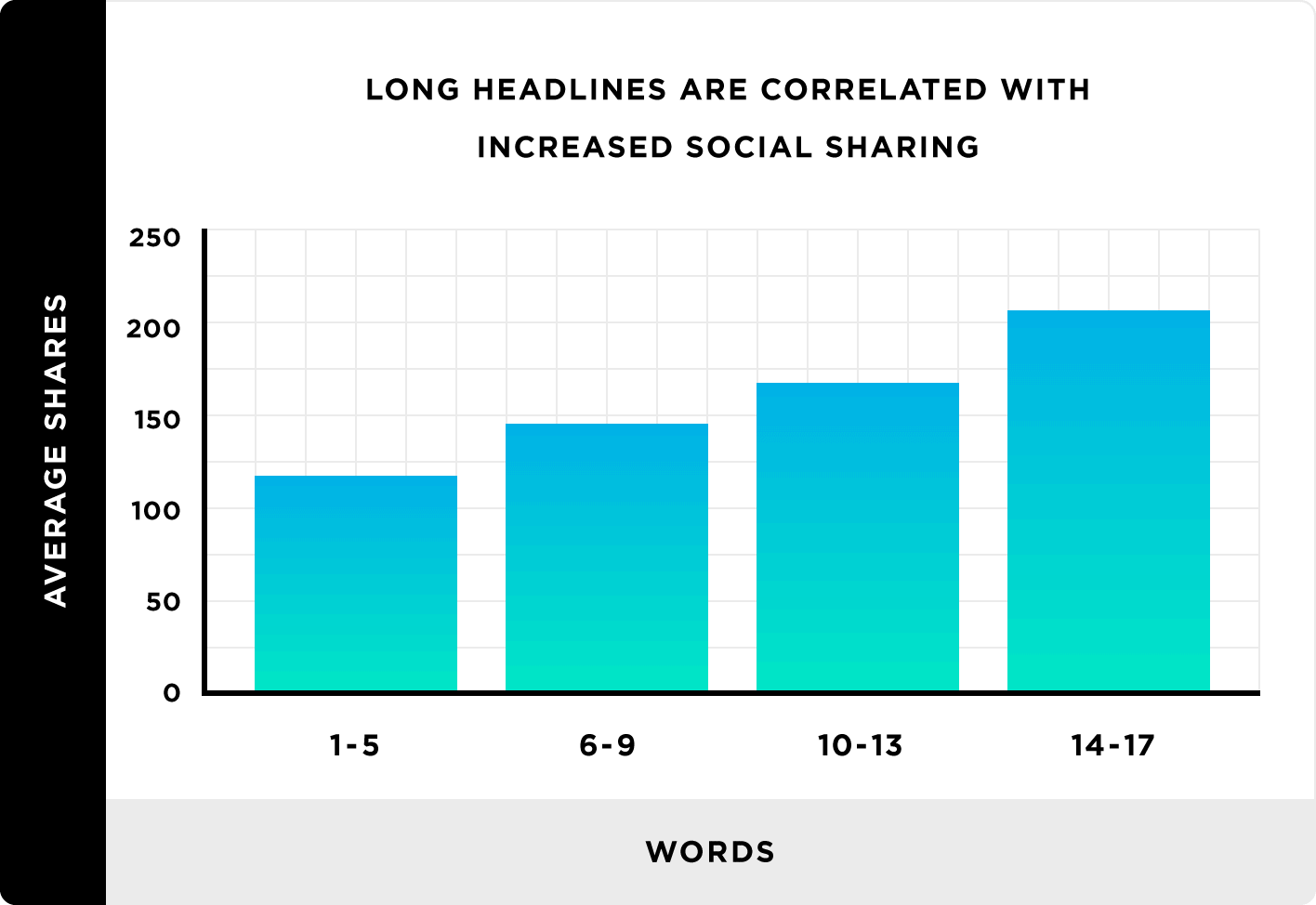
In fact, it’s not even close.
Our study found that long headlines get an average of 76% more shares than short titles.
I try to put this finding into action with my own content.
Instead of a short headline like “SEO Case Study,” I tend to use headlines on the longer side, like this:

And according to this study, and my own experience, these longer headlines work GREAT.
11. Partner With Influencers
Influencer marketing works well for brands of all sizes.
The key to success?
Don’t just chase follower counts.
Look for engagement rates and audience alignment before partnering with an influencer.
For example, Semrush partnered with a TikTok marketing influencer whose videos tend to get a high level of engagement.
The influencer, who has over 55,000 followers, “spills the tea” about an update to one of Semrush’s competitive research tools in a short video.

And the video received 2,490 likes, 240 bookmarks, and 31 comments.
This partnership helped Semrush reach a wider audience. And promote its SEO tools.
Semrush also uses industry influencers to teach courses on Semrush Academy.
Like this course on search and conversions for agencies:

Taught by well-known content marketer Andy Crestodina, this partnership has multiple benefits for Semrush.
- Provides value to Semrush’s audience
- Associates Semrush’s brand with top industry experts
- Expands Semrush’s reach by tapping into Andy’s audience

12. Test Exit-Intent Popups
I’m not going to lie to you:
Nobody likes popups.
But they work REALLY well.
That is: If you stick to exit-intent popups.
Unlike a normal popup that annoys the crap out of people, an exit-intent popup only appears when someone’s leaving your site.
That way, you don’t interrupt visitors who are reading your content.
(Which is annoying.)
Instead, you offer them something of value before they leave your site.
(Which isn’t as annoying.)
We’ve shown our exit-intent popups to literally 500k+ people. And I’ve yet to receive a single complaint.
Speaking of email…
13. Segment Email Subscribers
Marketing automation is all the rage right now.
And for good reason:
Segmenting your subscribers by demographic, interest, or purchase history can give your conversion rate a huge boost.
In fact, we segment our subscribers based on their interest (or lack of interest) in YouTube SEO.

This lets us only send YouTube-related stuff to people who WANT to receive it.
To be clear: If you’re new to email marketing, I don’t recommend setting up complicated funnels or creating 100 segments.
Start small.
For example, let’s say you have two groups of people on your email list: teachers and students.
Well, you’d want to segment these folks into two groups and send targeted content to each one.
For most small businesses, that level of segmenting works best. Any more than that and you tend to get diminishing returns.
Further reading: 33 Digital Marketing Tools for Every Budget
14. Pre-Launch New Products
About to launch a new product?
Awesome.
Just make sure you tell people about it BEFORE your actual launch.
According to a paper published by the Norwegian Business School, pre-launch buzz can lead to more sales.
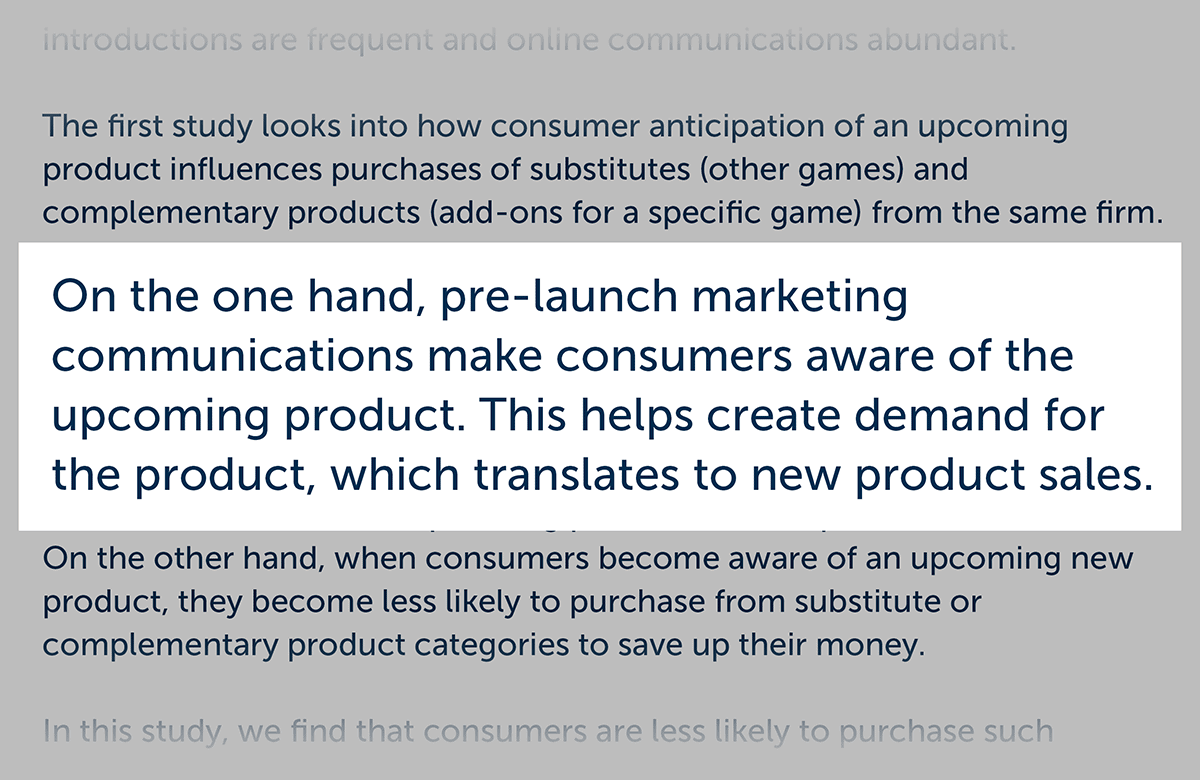
Fortunately, your pre-launch marketing campaign doesn’t have to be a huge production.
In fact, just mentioning your product before you launch can create some buzz.
This is something I make sure to do with each and every launch.
For example, before we first launched our YouTube course, we ran a three-part email series about YouTube marketing.

And I previewed the upcoming course at the end of each one.
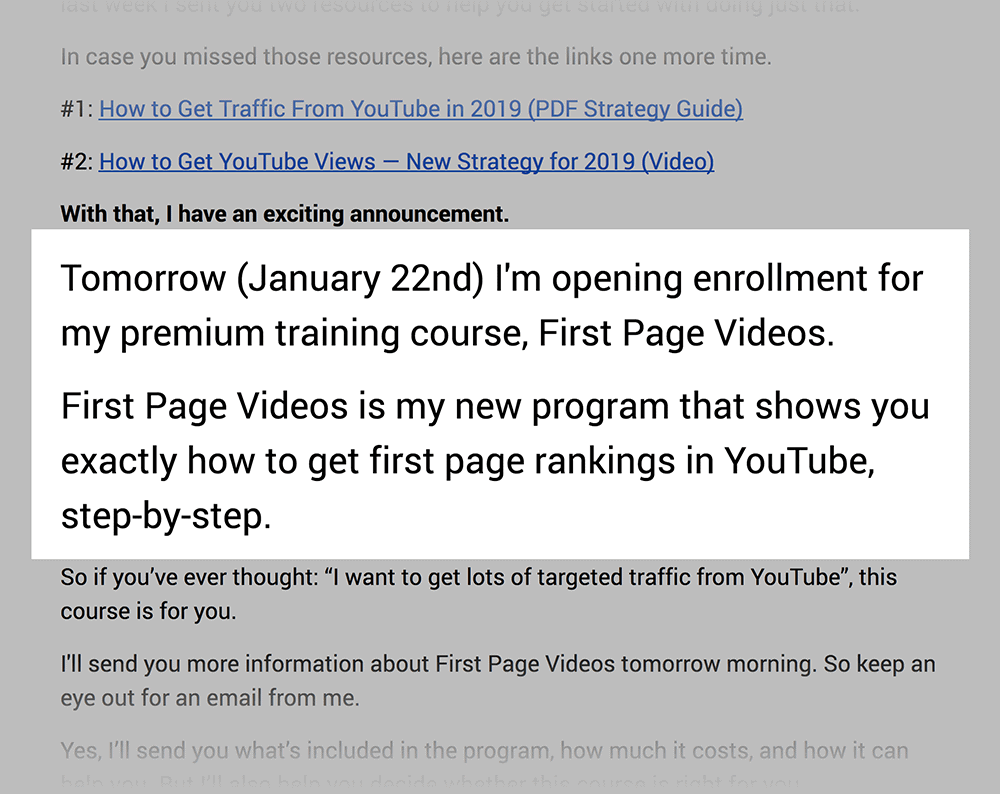
Which helped us hit our internal goal for that launch.
I haven’t run a split test on this, but I’m confident the course wouldn’t have done nearly as well if we launched our program out of the blue.
The pre-launch was a big part of that launch’s success.
15. Become a Podcast Guest
According to Edison Research, almost half (47%) of Americans 12 and up have listened to a podcast in the last month.
That’s a lot.
Question is:
How do you make podcasts part of your marketing strategy?
Well, you could start your own podcast. But that can take months (or years) to get traction.
Or you could go on popular podcasts as a guest.
Being a guest on a podcast is an awesome marketing tactic that very few people are taking advantage of.
When you get interviewed on a podcast, not only do you and your business get some serious brand awareness, but you also get high-quality backlinks from the podcast website:
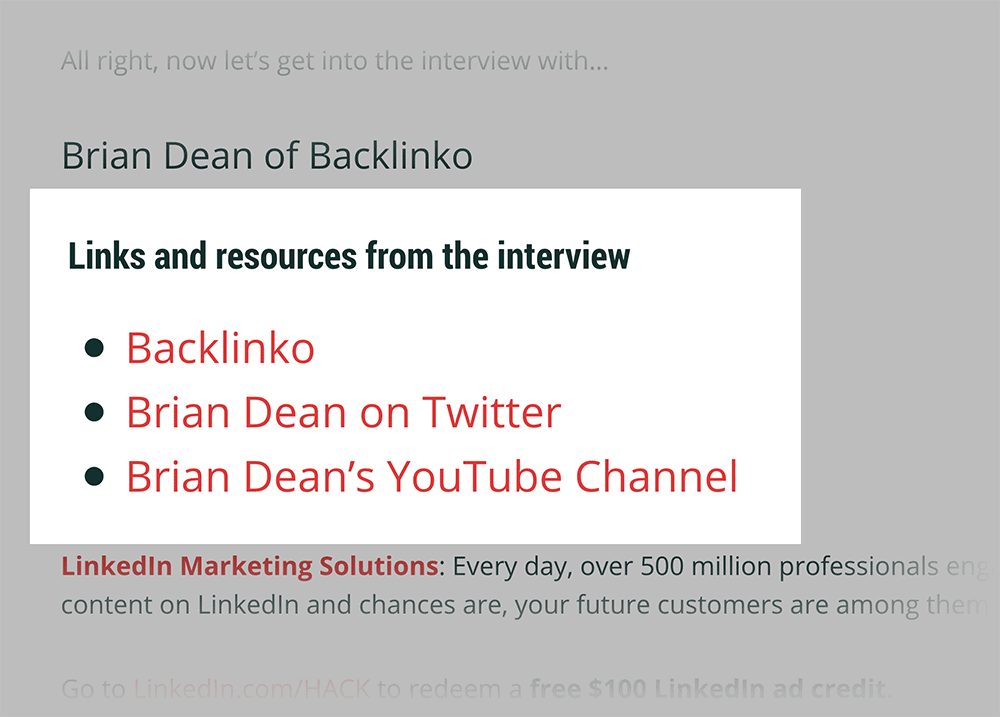
16. Focus on Community Building
Wait—before you head over to Reddit or Quora, consider this:
This digital marketing tactic isn’t about dropping links and running.
It’s about becoming a valued member of communities and forums.
Over time, this approach can help you connect with influential people in the industry who may share your content and help drive traffic to your site.
But it takes patience and persistence.
And a genuine interest in sharing advice and learning from others.
For example, Traffic Think Tank is a helpful community for those in the SEO and digital marketing industry.
Members share advice, answer questions, and learn from each other.
There’s also a “Show-Off” channel in the Traffic Think Tank Slack community, where members can share achievements and content.

Thinking about trying community building?
Here’s what I recommend to make it successful:
- Add value: Contribute meaningfully to discussions and share your expertise when relevant
- Be helpful: Answer questions and offer solutions to problems other members are facing
- Engage consistently: Regular participation helps build relationships and establishes your presence in the community
- Share content wisely: Only share your own content when it’s truly relevant and helpful to the ongoing conversation
17. Write an Awesome Welcome Email
When new folks sign up for your email list, the first impression they get is HUGE.
This is why I recommend writing a welcome email that gets people excited about whatever it is they just signed up for.
It doesn’t have to be complicated.
Just a simple email that warmly welcomes them… and lets them know what to expect.

That’s all there is to it.
18. Publish Long-Form Videos on YouTube
YouTube is the largest video-sharing platform and the second-most popular social network (behind Facebook).
And one of the best ways to get more views from your videos?
Publish long-form videos.
This is something I learned from trial and error.
I pretty much only publish videos on my YouTube channel that are at least 10 minutes long.

And this focus on long-form video content has helped my channel’s views and subscribers skyrocket over the last two years.

Why do longer videos work best?
It’s simple:
Longer videos help bump up your watch time.
As long as your videos are really well done, longer videos naturally accumulate more watch time vs. shorter videos.

19. Create Custom Charts, Graphs and Visuals
There are two main reasons I recommend using custom visuals in your blog posts.
First off, they simply make your content look better.
For example, in this post, I outline the best time to send newsletter emails (and why).
And I used a nice-looking visual to help make the concept easier to understand.

Second, bloggers will sometimes embed your visuals in THEIR posts…
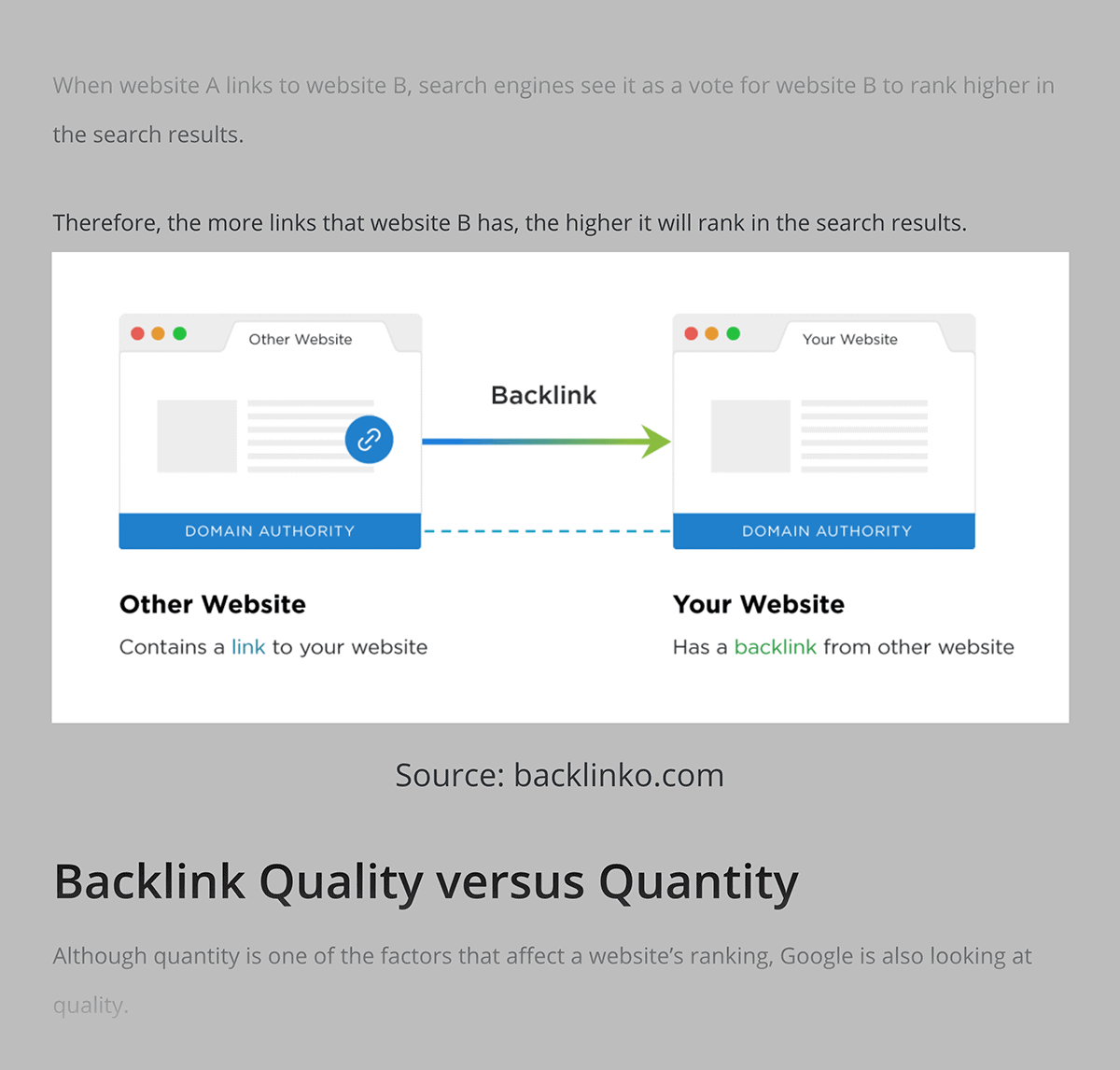
…which can lead to dozens of backlinks.
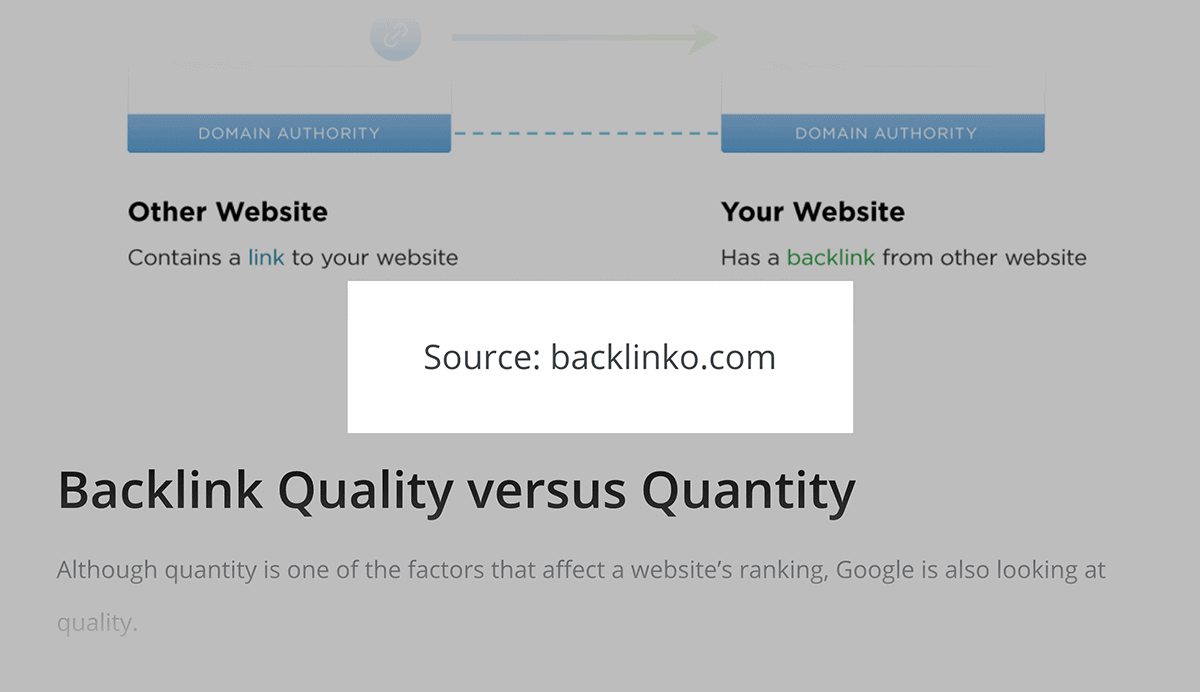
I personally work with a professional graphic designer to get these visuals made. But if you have graphic design skills, you can make these yourself in Photoshop.
Either way works.
Bonus #1: Optimize for Low-Competition Keywords
If you’re just starting out with SEO, I recommend focusing on keywords that don’t have a ton of competition.
Otherwise, you have very little chance of ranking.
For example, let’s say you want to rank for the keyword “search engine optimization.”
Well, according to Semrush’s Keyword Overview tool, that keyword has a difficulty score of “100.”

In other words: That term is going to be SUPER hard to rank for.
That’s why I recommend going with a long-tail version of that keyword, like “search engine optimization cost.”

As you can see, it’s MUCH less competitive.
This approach doesn’t just apply to the blogging world.
Low-competition keywords are GREAT for ecommerce sites. When you target long-tail keywords, you’re not going head-to-head against Amazon for terms like “coffee mugs.”
Instead, you’re going after keywords that you have a decent chance of ranking for.
Bonus #2: Retarget Website Visitors on Facebook
There’s no denying it:
Pay per click (PPC) advertising is getting more expensive.
Especially Facebook ads.
Fortunately, there’s a way to get your ads in front of potential customers… without paying a fortune.
Retargeting.
With retargeting, you only show ads to people who recently visited your website.

Not only do retargeting ads tend to convert well, but they’re usually cheaper too.
For example, we ran a Facebook ad campaign that didn’t use retargeting.
And that campaign cost us an average of $4.42 per click.
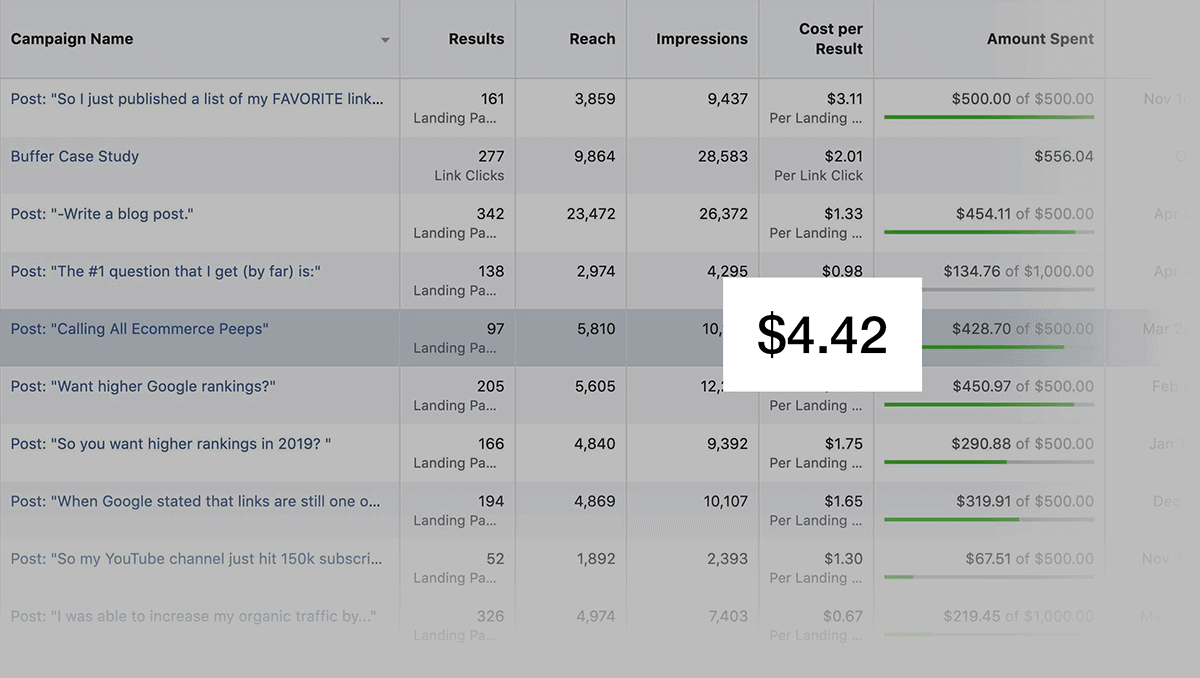
Ouch.
We also ran a hyper-targeted campaign aimed squarely at people that viewed one of our landing pages.
And that the CPC for that campaign was $0.98.
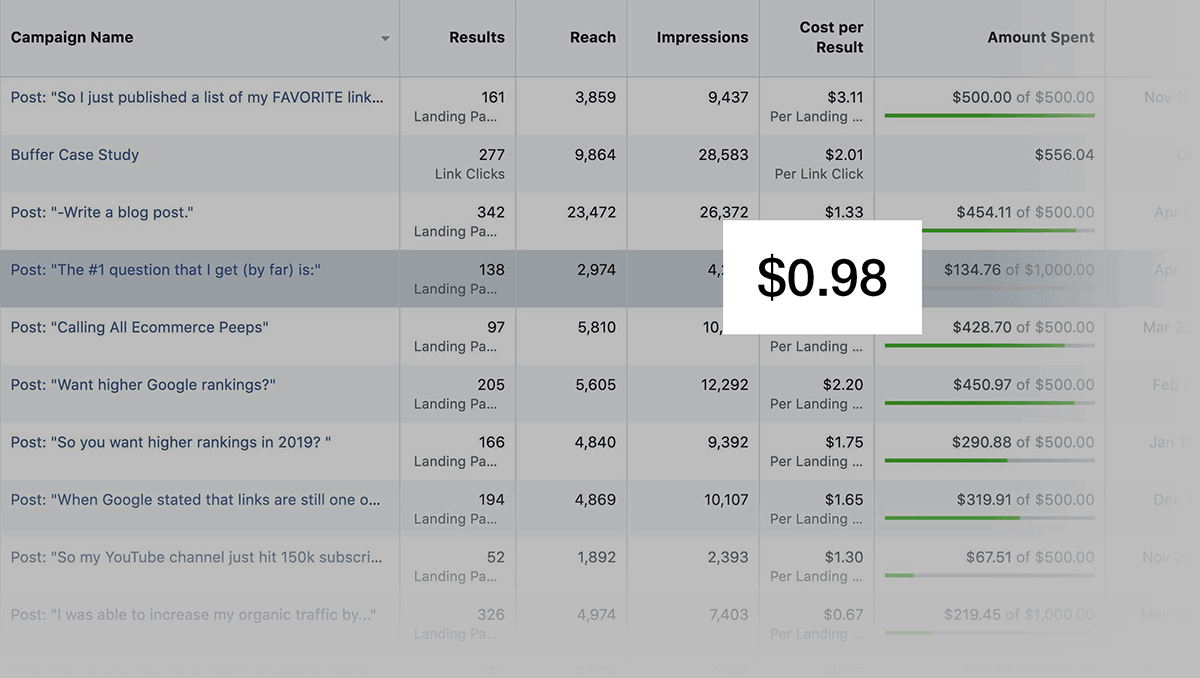
Which Digital Marketing Tactics Will You Try?
Which digital marketing tactics from this list are you going to add to your marketing plan?
Choose one tactic from this list that you think will impact your business most. Then, commit to implementing it over the next seven days.
Maybe you’ll start with short-form video on TikTok.
Or perhaps you’ll focus on updating your old blog content.
Whatever you choose, the important thing is to take action.
And if you want to dive deeper into content marketing strategies, check out our content marketing hub. It’s a collection of in-depth articles covering many of the tactics on this list.
Backlinko is owned by Semrush. We’re still obsessed with bringing you world-class SEO insights, backed by hands-on experience. Unless otherwise noted, this content was written by either an employee or paid contractor of Semrush Inc.
